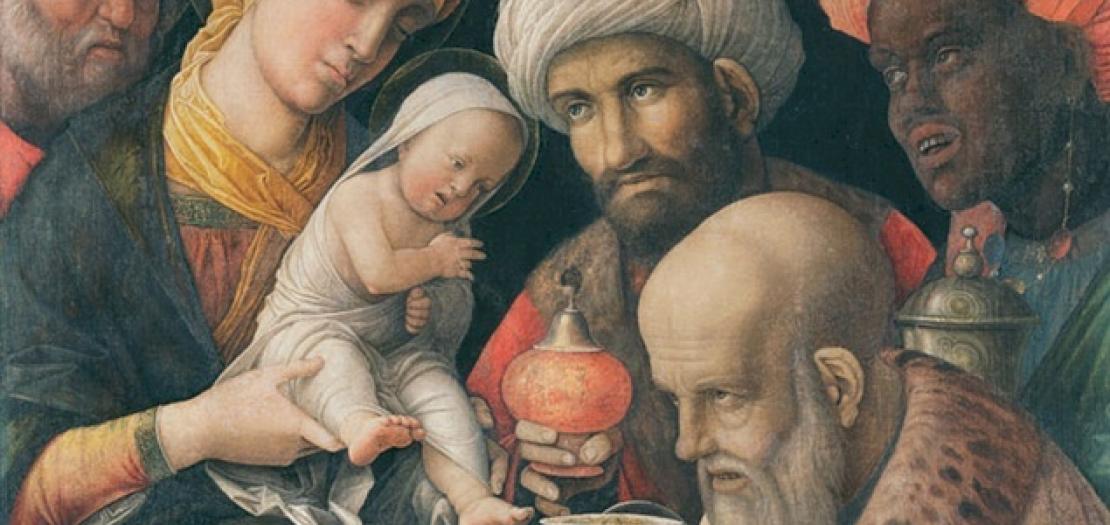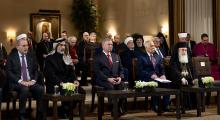Issued by the Catholic Center for Studies and Media - Jordan. Editor-in-chief Fr. Rif'at Bader - موقع أبونا abouna.org

Following is the text of the meditation by Latin Patriarch of Jerusalem His Beatitude Pierbattista Pizzaballa for Solemnity of the Epiphany, January 8 2023:
We began the new liturgical year with the time of Advent, and with the invitation, on the first Sunday of Advent, to pay attention, to be vigilant (Matthew 24:37-44). Only in this way can the encounter with the Lord happen Who comes, Who reveals Himself.
Today, the Solemnity of the Epiphany, we return to this invitation, and we see, in today’s Gospel passage (Matthew 1:1-12), who are paying attention, and therefore encounter the Lord, and others, instead, unable to pay attention, and who therefore do not encounter Him. Both the one and the other help us to understand what it means to pay attention, how to live as attentive persons.
Living as attentive persons means to realize something has happened and to take it into consideration.
A different star arises in the sky, but not everyone seems to pay any attention: probably they see many, but only the Magi, in the East, recognize it as the star of the Messiah; only the Magi give importance to what they have seen.
To be attentive means, therefore, to recognize that what happens is a sign, it carries in itself a word, it says something. It means to recognize that the sign is for you to listen up.
Perhaps everything is not understood, and the sign speaks with languages that are not always ours. But, to begin the journey, it suffices to realize that the event is not dumb, that facts speak.
And this is already the first step of salvation.
Sin has, in fact, shifted the attention of man, derailed the object of his gaze, of his interest: after sin, man stopped looking up, stopped looking at the place where God dwells, and has stopped looking at himself, at his nakedness. And later, throughout the history of salvation, God looks just for this, He looks for people capable of looking beyond themselves, of going beyond themselves, of setting out on the way.
“My people have their minds set on turning from me; called to look up, no one knows how to lift up his gaze” (Hos 11:7), says the Lord. And Isaiah echoes Hosea in today’s first reading, in the phrase: “Raise your eyes and look about…” (Is 60:4).
Being attentive, then, means obeying and setting out on the way.
When one has listened, then one needs to make space within oneself for what the word sows in us and, usually, the word sows a desire in us, a unique big desire, which is that of seeking the Lord, the desire to know Him and, finally, to live for Him. “We came to adore Him,” the Magi will say (Matthew 2:2).
It is exactly what does not happen to the chief of the priests and the scribes of the people, whom Herod sends to try to unravel this mysterious announcement that the Magi brought to Jerusalem (Matthew 2:4-6). These scholars of Israel know the lesson well, and they give the correct answer, but this does not change their life, does not set them in motion, does not arouse a desire in them.
And it is startling that religious persons, that the learned, do not set off to look for fulfillment, that they stop first, that they are impeded from what they know as if their knowledge alone is not enough.
Another element to note is that the announcement comes from outside: Jerusalem is the place of promises, but the announcement that the promises are fulfilled does not happen there and it comes from outside, from foreign and distant people.







